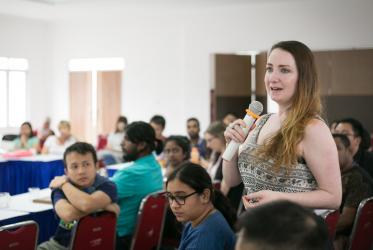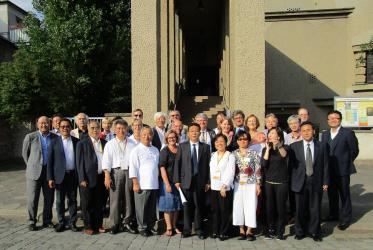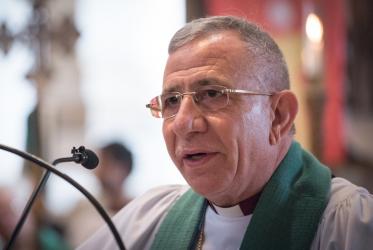Displaying 101 - 120 of 309
Echoes from Yangon
26 October 2017
Nobel prize-winner ICAN says it will work for full nuclear ban
06 October 2017
Churches appeal for peaceful dialogue in Korea
28 September 2017
“I can do things better back home”
30 August 2017
We are called to work on a peace built on trust, not power
04 August 2017
Bishop Younan awarded Niwano Peace Prize
22 February 2017
Ban nuclear weapons by law next year, says historic UN vote
28 October 2016








